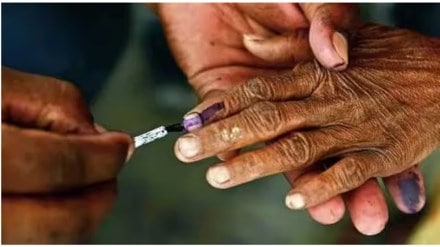By Prof Ajay Kumar Singh
The very idea is dangerously undemocratic and ambitiously autocratic, hitting hard on the foundational idea of India and its constitution. India is not singular, but plural. It is probably the reason that the constitution, in any mode of its readings, defies homogeneity. Plurality is the essence of our constitution. We find multiple plurality indexes in the constitution.
To mention a few:
- India is a plural-federal nation. It is probably the reason that we find a multi-tier autonomous mode of governance. Had this been not a fact, our founding fathers would not have provided for special provisions from the fifth schedule onwards;
- Plurality of representation, including equal and weighted voting rights of the people, region and states;
- Plurality of elections i.e. no singular formula of elections, and no single time frame. Indeed, the constitution provides for a generalised life-span of an elected institution, but it is again circumscribed by the factors of confidence-no-confidence. On a deconstructed analysis of the constitution it is fairly clear that the Indian constitution presents, to use post-developmental narratives, pluriverse view of democracy. No uniform frame of rights, liberties, elections, representation, governance and development can serve the core logic of democracy as demos enabling doctrine;
- Plurality of rights and choices to be exercised either through a multi-party system or otherwise. Choices are neither uniform nor unilateral, nor uni-dimensional. The very idea of one nation one election sockets public choices, puts it in a fixed mode. Let us not forget that choices are multi-temporal and varying on time scale;
- Plurality of policies, again varying from time to time, and from locality to localities. Not necessarily, one national policy (as is evident from the psychopathic infatuation with ONE) cannot sub serve every diversity. One cannot wait for five years or more, in the proposed fixed mode of election, to seek alteration in policies. In the present mode of elections, one has plenty of opportunities to circulate and to enter into hard bargaining with political formations- local, regional, and national- to seek policy changes. In other words, plurality of elections at the intervening period secures people from policy dictates of one time elections. It is needless to mention that in an ideologically driven party rule, policy is not what the public want, rather it is what suits the ideological and political project of a party. Let us not forget that election is an act into instrumenting and moving democracy, and not pausing it. One nation one election pauses democracy into sleep mode, having inherent tendency of a government to be authoritarian.
Now let us understand the political linguistics of the resolution dated 2nd September 2023, notifying the high level committee on one nation one election. The committee is headed by a former president of India. Constitutional morality requires keeping the [former] first citizen away from a politically aligned committee. Its sheer composition makes it a political committee. It does not have any traces of parliamentary/representative democracy. One cannot expect from a politically loaded committee to be neutral in its examination of the issue in question. What is being argued here is that it is a shadow committee to rationalise party agenda.
Composition has a severe deficit of democracy. Its terms of reference makes one nation one election a foregone conclusion. It goes further to hit at the core of federalism by putting in place one frame-one-go-election by cleverly phrasing “holding simultaneous elections to the house of the people, state legislative assemblies, municipalities and panchayats.” Federalism in diverse societies like India creates and operates through different political terrains. Different terrains have differing federality of interests, power distributions, varying political ecology, and developmental economics. Elsewhere, I have argued that the current phase of Indian federalism can better be termed as ‘national federalism’, marked by considerable loss of public autonomy, and sovereignty shift- from people to state, state to centre, centre to prime minister, with considerable loss of institutional autonomy. It is a federalism nurtured in the homogenising and hegemonic national space. One nation one election will put an end to sub-national and local federalism. National narrative and dominant leadership will determine electoral outcome at the local level in simultaneous holding of elections. Weakening of federalism also amounts to weakening of democracy.
Another victim of the present exercise will be the constitution itself. In order to give way to one nation one election, several articles including those shielding basic features will be altered. It will be an exercise into writing a mini-constitution, an exercise for which the present parliament per say is not competent. Anyway, there is a shuttle move to outdo the constitution. For protagonists, a stable government ensures better governance. But the constitution is more concerned about systemic stability than governmental stability. Governmental stability is no excuse for rationalising the extremely difficult and impractical idea of one nation, one election, establishing a ‘national state’, subsuming plurality into one mega and monstrous state. Ultimate loser will be WE THE PEOPLE OF INDIA.
Author is from Centre for Federal Studies, Public Policies and Governance, Jamia Hamdard, New Delhi-110062. drkumarajaysingh@gmail.com
Disclaimer: Views expressed are personal and do not reflect the official position or policy of Financial Express Online. Reproducing this content without permission is prohibited.
